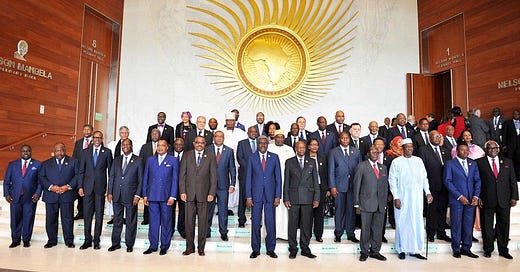Important Lessons for African Policymakers from the FDI Confidence Index
African policymakers need to recognise what it is that makes it attractive for foreign investors to operate within a particular country: economic freedom.
Written by: Alexander Jelloian
This year’s Kearney Foreign Direct Investment Confidence Index, an annual survey of global business executives that ranks the attractiveness of markets to invest in, has been released. The usual suspects (United States, Japan, Germany, etc.) took the top spots, with 19 of the top 25 places being occupied by developed economies.
However, that is not the interesting news from the Index. For the first time in the Index’s history, a section was included on the top 25 ‘emerging markets’ that investors are looking to. Of these top-25, only two were located in Sub-Saharan Africa: South Africa was placed in the 17th spot, while Ghana barely made it as the 25th most attractive emerging economy for FDI flows.
Such low scores are not necessarily surprising. In 2020, when the World Bank released its last edition of the Doing Business Report, the only Sub-Saharan African states that fared mildly well on those rankings were Mauritius (13th), Rwanda (38th), and Kenya (56th). If countries are difficult to do business in, very few individuals want to invest their money in those places.
Nevertheless, there are important lessons that African policymakers can learn from this latest Kearney FDI Index.
First off, African countries need to make it easier for businesses to operate on the continent. There is a widespread perception that Africa is a difficult place to earn profit. Corruption is a huge problem that deters potential investors from engaging in private-sector activities across the region, and slow and ineffective judicial systems that may or may not protect a company’s private capital from the encroachment of others is seen as a huge incentive to spend money on projects elsewhere. If African governments were to make firm commitments to reduce corruption and protect private property rights, over time, global investors would begin to notice such changes.
Second, many African states need to make it easier to move goods across national borders. Since colonialism, tariff and non-tariff barriers have been so pervasive on the African continent that moving goods between states has become ridiculously expensive. Believe it or not, it is actually more expensive to move goods between Cameroon and Chad (about 1,700km) than it is to move those same goods from Cameroon to Shanghai, China (a distance of about 12,000km). With costs so astronomically high, investors that have historically wanted to set up shop in Africa have not been able to use one particular country as a ‘base’ to have access to the wider African market. Instead, an individual would need to set up many regional headquarters and figure out ways to move products to all of them: an incredibly costly and inefficient process.
Thankfully, it seems like African heads of state are recognising the need to facilitate greater intra-African trade, which could potentially rectify the problem just mentioned. The African Continental Free Trade Area, which has been signed by 54 of 55 African states (only Eritrea abstains), aims to drastically reduce both tariff and non-tariff barriers over the next decade. If successfully implemented, the AfCFTA would go a long way in making it far easier for businesses to move products across borders and access new markets. This would undoubtedly make Africa a far more attractive place to do business.
Finally, African policymakers need to recognise what it is that makes it attractive for foreign investors to operate within a particular country: economic freedom. Countries with high levels of economic freedom allow the best ideas to rise to the top and improve life for their citizens. Countries with low levels of economic freedom stifle growth, punish individuals and businesses for being successful, and burden entrepreneurs with excessive taxation and regulations that make everything more difficult. If African countries want to become more attractive places to do business, then they need to make themselves the kind of place where businesses can thrive.
Let’s hope they decide to do so soon!
Alexander Jelloian is the Research and Project Manager at the Initiative for African Trade and Prosperity.




